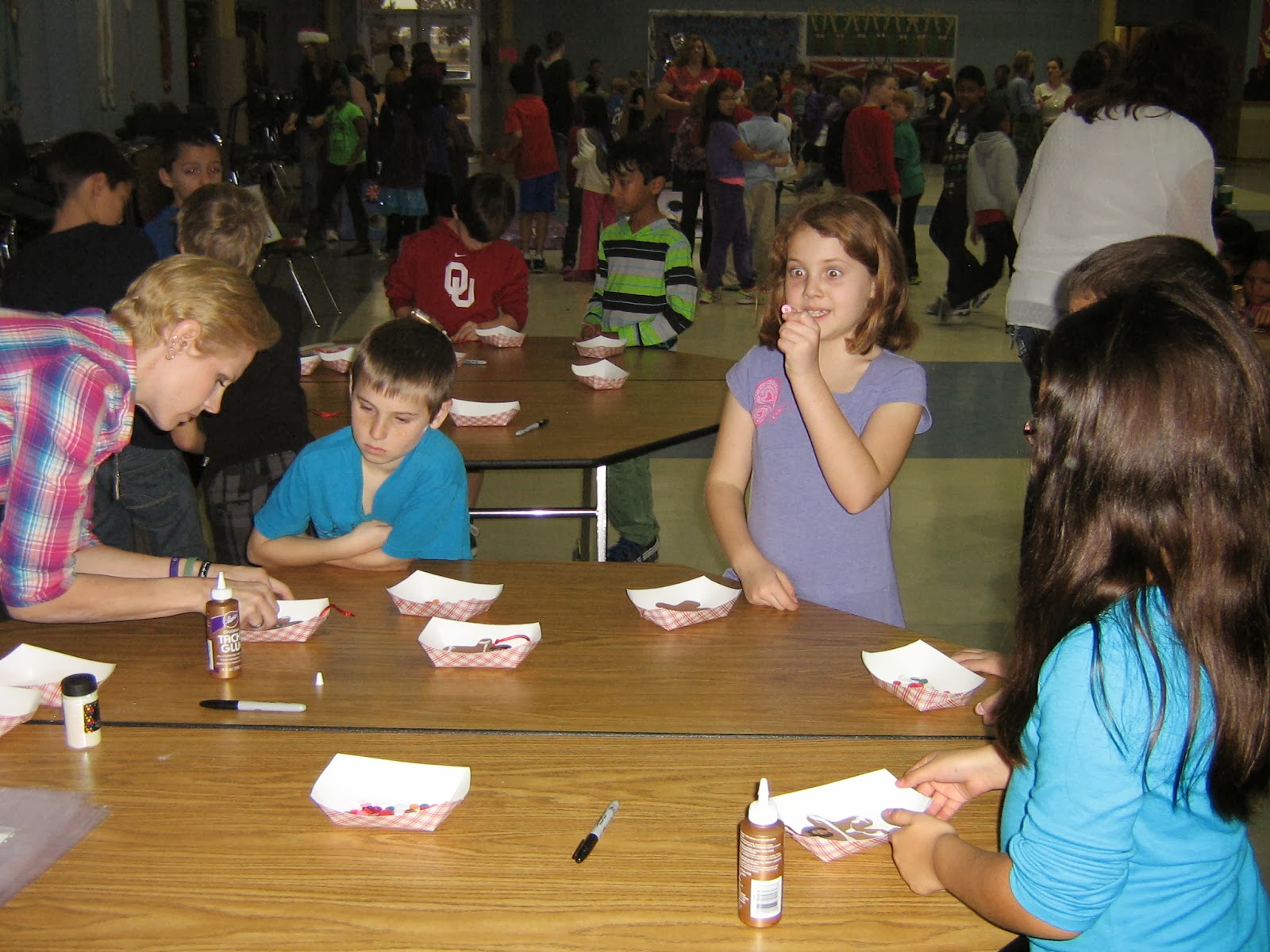I can't believe that 2013 is coming to an end!! We have learned so much! Today was our winter party. It was so much fun! I hope everyone has a wonderful winter break. I'll see everyone in the new year!
Friday, December 20, 2013
Tuesday, November 5, 2013
We had a great time at the Frisco Heritage Museum today! It was great to see the students share what they have learned to the tour guide and make connections about what he had to say. Ask your child what their favorite part of the trip!
 |
| Our tour began discussing the moral that illustrates the history of Frisco. |
 |
| We heard about the Frisco newspaper and see the tools the printers used. |
 |
| We had the chance to use a printing press and make our own message to send home. |
 |
| This is an old Ford car. |
 |
| We saw two living rooms of two different time periods from the past. This was a room from the 60s! |
 |
| The students were able to see the clothes children worn in early Frisco and see what life was like on the cotton field. |
 |
| A man explained the importance of Frisco's railroad. |
 |
| The class is entering the one room school house. |
 |
| The class listened to what a school day was like in early Frisco. |
Wednesday, October 30, 2013
Frisco History - Mrs. Fowler Presentation
One of my favorite units that we study in third grade is Frisco History. Frisco has more history than the students realize and I always enjoy when Mrs. Fowler visits to teach the students all about Frisco. Here are pictures from Mrs. Fowler's presentation.
Boosterthon Fun Run
We had a great time at the Boosterthon Fun Run! Our class pledged for nearly $70 per lap. That is amazing! I'm so glad to have a great class!
Friday, October 11, 2013
Rounding!
We have been practicing rounding in class. This is finding the nearest ten or hundred. One mistake often made is when you see a number like 487. That number has 4 hundreds so some students may think that 487 rounds to 400, but the number is actually closer to 500.
Here is a video to show how to use rounding hills to practice estimation.
http://youtu.be/yGD2rTQ6QxI
For a view of how rounding hills work, here are charts that explain how rounding works.
Please practice rounding at home!

Here is a video to show how to use rounding hills to practice estimation.
http://youtu.be/yGD2rTQ6QxI
For a view of how rounding hills work, here are charts that explain how rounding works.
Please practice rounding at home!

Thursday, September 19, 2013
Addition and Subtraction Strategies
We have been discussing the many ways to add and subtract. The first thing your child needs to do when reading a problem is to know whether they are solving a comparing (addition), separating (subtraction of some went away), or comparing (subtraction of finding the bigger, smaller, and difference).
After your child know whether they are comparing, combining, or separating then the solving begins!!
Please practice these strategies at home!
There are many ways to add.
Traditional way - this may involve regrouping numbers:
Number line - by jumping the hundreds, the tens, and the ones:
Partial Sums - The numbers can be broken a part by their place value and then added:
Adding one number in parts - One number can be broken in parts and then added:
There are many ways to subtract:
Traditional way - this may involve regrouping numbers
Number line - by subtracting on the number line by jumping the hundreds, tens, and ones. This could be done in several ways so see the pictures below.
Partial Differences - the numbers are broken into parts by their place value
Subtracting one number in parts - one number is broken in parts and then subtracted with the other number
Videos made by Mrs. Jones also explains our strategies
http://youtu.be/2znSv_qiTjA
After your child know whether they are comparing, combining, or separating then the solving begins!!
Please practice these strategies at home!
There are many ways to add.
Traditional way - this may involve regrouping numbers:
Number line - by jumping the hundreds, the tens, and the ones:
Partial Sums - The numbers can be broken a part by their place value and then added:
Adding one number in parts - One number can be broken in parts and then added:
There are many ways to subtract:
Traditional way - this may involve regrouping numbers
Number line - by subtracting on the number line by jumping the hundreds, tens, and ones. This could be done in several ways so see the pictures below.
Partial Differences - the numbers are broken into parts by their place value
Subtracting one number in parts - one number is broken in parts and then subtracted with the other number
Videos made by Mrs. Jones also explains our strategies
Subscribe to:
Comments (Atom)







































